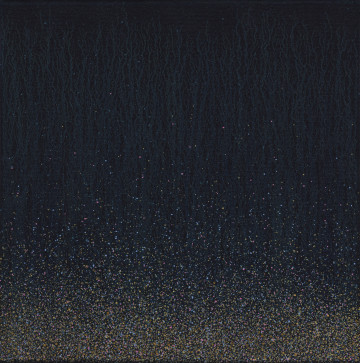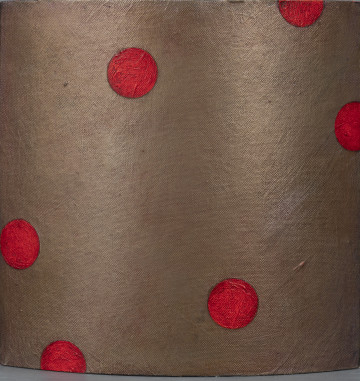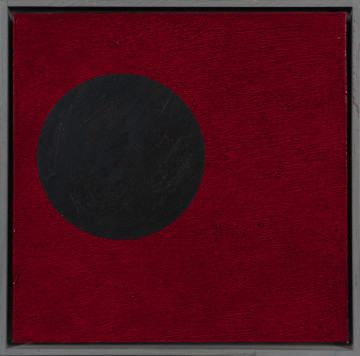
RW
2020
National Museum in Szczecin
Part of the collection: Post-avant-garde and progressive art
For more than two decades, the work of Zbigniew Romańczuk (1960- ) has been characterised by an analytical approach to the problem of digital imaging. The digital revolution has led to images being created on the basis of a binary system, detached from their material base and circulated on an unprecedented scale through a network of computer connections. Images composed of pixels are characterised not only by their ease of dissemination, but also by their susceptibility to profound transformation. This susceptibility to transformation, correction and manipulation suggestively reveals the distinctiveness of the digital domain and separates it from the world of traditional images, which are permanently bound to their material medium. Today's dominance of the iconosphere by digital images is having an unprecedented impact on the way we perceive reality, changing social relations and creating new models of global participation. These cultural and social effects of the digital age are the natural context and point of reference for Romańczuk's artistic practice. In order to fully understand them, the artist asks the most fundamental questions about what a digital image is, what its nature is, and what interactions it can have with other visual manifestations, such as classical painting. No. 1 is a painting created as part of a long-term, original artistic and research programme called the Grid System, the primary aim of which was to identify the problems facing the image in the era of the development of reproduction techniques and the possibilities of creating and manipulating images in a digital environment. Like many of Romańczuk's other works, No. 1 was created on a computer using digital graphic processing. This "information" was transferred to the canvas using a digital printing process, resulting in a large-format, material image in which a rhythmically arranged sequence of enlarged, pixelated raster dots creates a highly sensual, energetic whole with strong optical effects and dense modular structures. Magdalena Lewoc
Author / creator
Object type
painting
Technique
computer graphics, digital printing
Material
canvas
Origin / acquisition method
donation
Creation time / dating
Creation / finding place
Owner
Muzeum Narodowe w Szczecinie
Identification number
Location / status

2020
National Museum in Szczecin

2008
National Museum in Szczecin

1994
National Museum in Szczecin
DISCOVER this TOPIC
National Museum in Szczecin
DISCOVER this PATH
Educational path